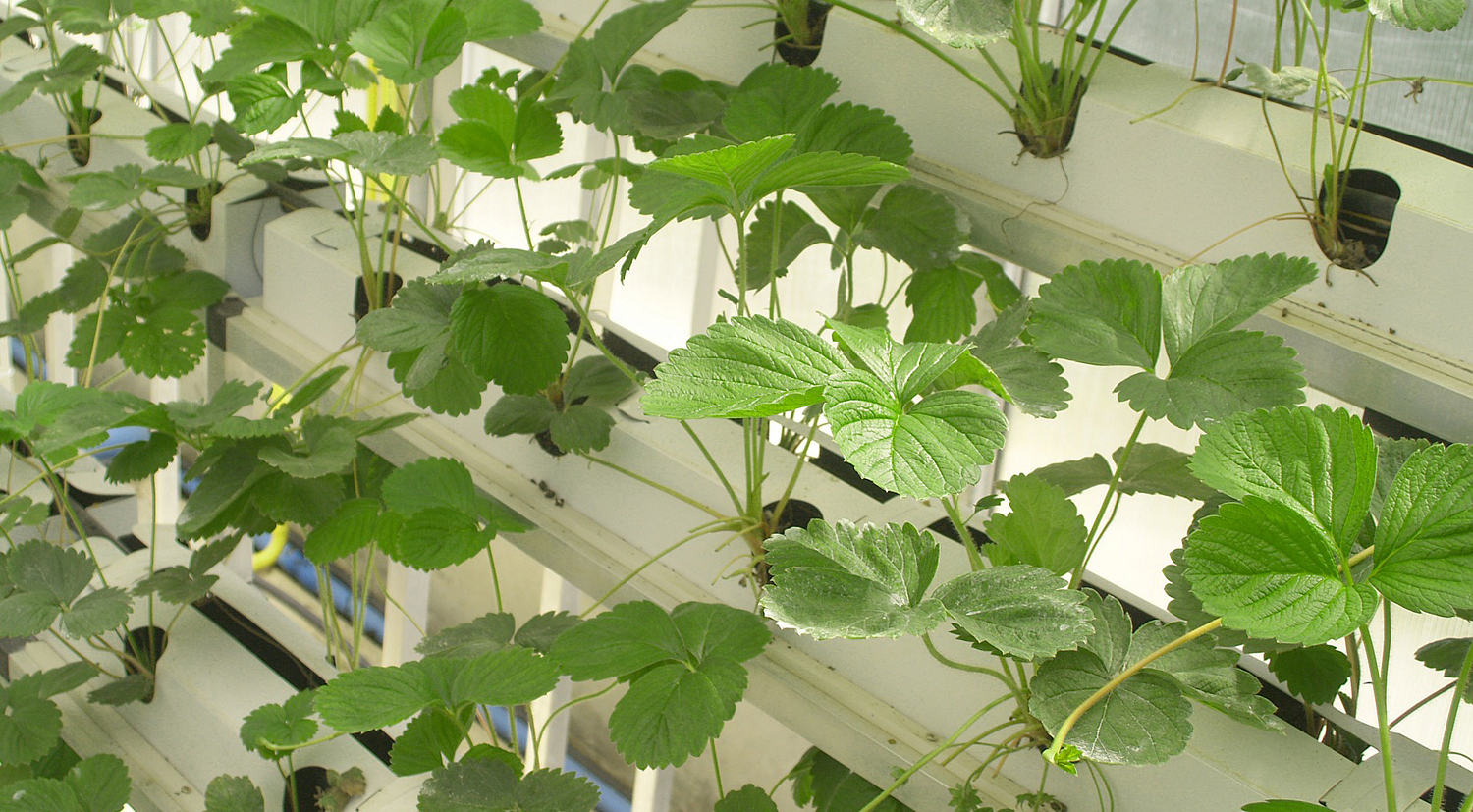G. Michael Barnett with a hydroponic garden (Lee Pellegrini)
The National Science Foundation has awarded the Lynch School of Education and Human Development a three-year, $1.45-million grant that will engage low-income youth in an interdisciplinary program where they will learn and apply scientific and computational concepts and practices to build automated, soil-less food-growing structures.
The project, titled “Developing Technological Innovation: Building a Youth-led Learning Community through Automating Hydroponic Systems,” builds on two recent NSF awards to the Lynch School totaling more than $2.71 million that supported low-income high school students in a similar agricultural technology project, and the training of environmental science teachers.
“We are very indebted to the NSF for its ongoing support,” said G. Michael Barnett, Lynch School professor of science education and technology and the project’s principal investigator. “This work directly addresses a growing need to engage low-income youth who are underrepresented in science, technology, engineering and math [STEM] in learning more about computational science, the future role of automation, and how science and technology skills and practices are directly related to a range of scientific and technical careers.”
To launch the program, expected to begin this summer, researchers will train high school students to program low-cost micro-controllers to collect data, and to use that information to automate recently developed mini-hydroponic units that can grow 30 to 60 plants. The high school participants, with support from program alumni and first-generation college student mentors, will then learn how to teach and share the science and computational lessons with middle school students to reinforce STEM career pathways for youth. Institutional partners include the Boston, Springfield, and Waltham Public Schools.
“We are focusing much of our career development on how STEM skills can lead to a wide array of careers, how the work world is becoming more interdisciplinary and in need of individuals who can utilize and interact with automated systems,” said Barnett, who also directs BC’s Innovations in Urban Science Education Lab. “This work offers a much-needed approach to supporting youth in examining professions across the fields of agriculture, computation, and science instruction.”
In addition to Barnett and Lynch School Senior Research Associate Helen Z. Zhang, the project management team includes Lynch School Counseling Psychology Professor and Duganne Faculty Fellow David Blustein, and Counseling, Developmental, and Educational Psychology Professor Maureen Kenny, who will co-lead the STEM career development curriculum. Also involved are Lynch School Research Associate Rajeev Rupani, an expert in design thinking, electronics and coding, and Lasell University Education Chair Claudia Rinaldi, who guides Lasell’s Pathways to Teacher Diversity program in which college students mentor high school students exploring STEM careers.
Phil Gloudemans | University Communications | February 2021




